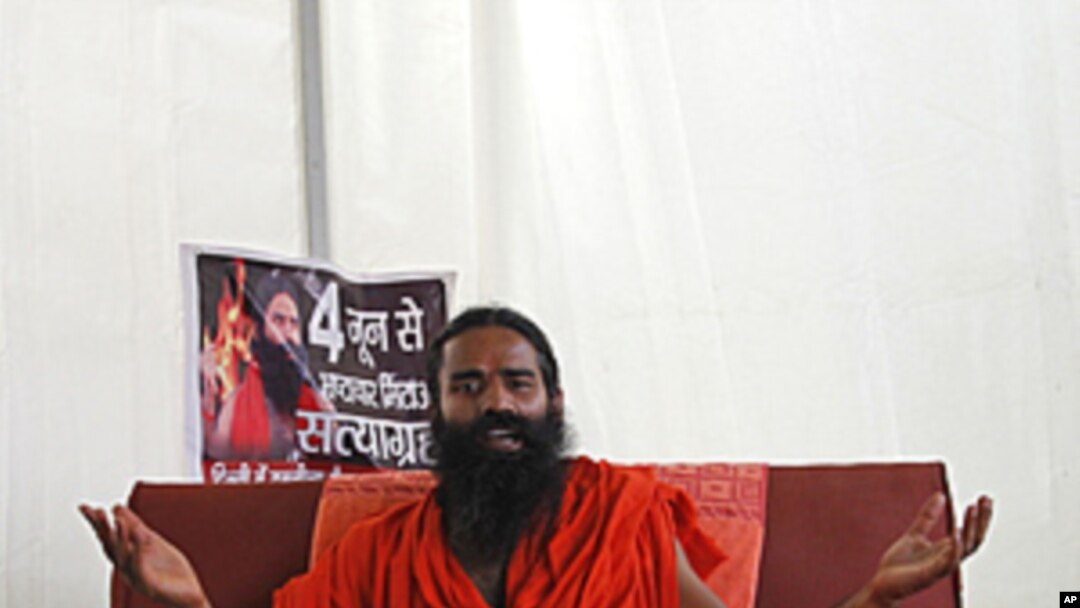Senior Indian officials are trying to prevent a high-profile yoga guru from commencing a public hunger strike. The scheduled fast is aimed at reviving populist pressure for action on India's deep corruption problems.
Indian media crews have already begun gathering at a massive outdoor space in the Indian capital, where celebrity yoga expert Baba Ramdev has promised he would begin a "fast unto death" against corruption on Saturday.
Indian Prime Minister Manmohan Singh has personally urged Ramdev not to begin the fast. The guru has rejected that appeal as well as the overtures of four senior government ministers who personally greeted the arrival of his chartered jet Wednesday at the Delhi airport. He says he will press ahead.
He says more than 10 million people will join him on the first day. He adds that millions of people who want to see the country rid of corruption and get social justice will participate in this campaign.
Ramdev is an iconic figure, easily seen by his long hair and beard, and unchanging wardrobe of loosely draped saffron cloth. His organization of yoga-related media and health products reaches tens of millions of people in India and around the world.
His hunger strike picks up where a similar movement by social activist Anna Hazare, 73, left off in April. Both are aimed at pushing the government to pass a bill establishing a new, citizen-led organization with power to identify and prosecute corrupt officials.
News of billion-dollar scams in real estate, telecommunications, and last year's Commonwealth Games in India has fueled popular anger at the government. Earlier this year, a U.S. research group report estimated nearly $500 billion had been illegally moved out of India during the past six decades.
Ramdev says it is time to get some of that "black money" back, and bring those responsible to justice.
Those responsible for major scams should be punished by hanging, he says. More than seven million people die of hunger every year in India, he says, and the corrupt should bear some responsibility for those deaths.
Delhi University political analyst Mahesh Rangarajan says even if the hunger strike gets underway, there are questions of whether it will escalate into a mass movement.
"There has been a fair amount of progress on some major corruption cases," said Rangarajan. "Some fairly senior corporate figures, political leaders, have been detained, and it is widely expected that some more arrests will follow in the very near future. So, I think the picture is a little less bleak for anyone campaigning against corruption than, say, two months ago."
Rangarajan also points out that last month's elections in five Indian states dealt decisive blows to several parties widely associated with corruption.
Indian Yoga Guru Tries to Revive Populist Movement

Yoga guru Baba Ramdev talks at the site of a Yoga camp he is likely to host later this week, in New Delhi, India, June 1, 2011.

